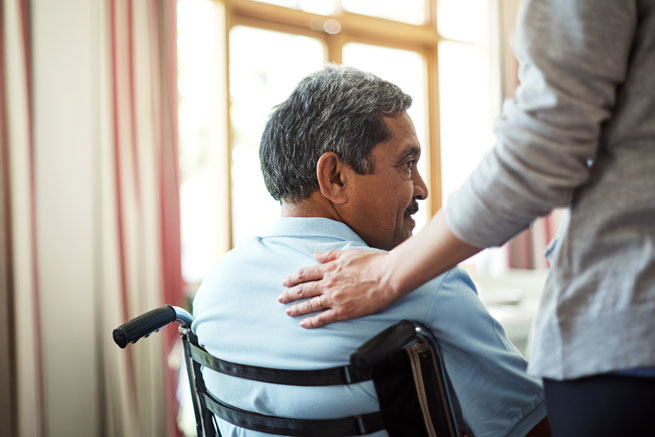This article was written by a marketing team member while visiting the dedicated clinical staff at Rose Arbor Place in Kalamazoo, MI. Spending time with nurses, hospice aides, and the patients and families they serve offered a firsthand look at the compassionate care provided by Centrica Care Navigators.
The main reason Centrica Care Navigators has the blog that you’re reading right now is to introduce the world of hospice and palliative care, and all the different forms that care can take.
I write posts about important topics like grief and loss. Other times, I’m writing posts that tell the story of our staff, and how the different roles in our organization help our patients.
The best way to tell someone’s story, of course, is to spend time with them. Recently, I got a chance to do just that: I spent the day with nurses and hospice aides at Centrica Rose Arbor Place, our site for patients who need consistent symptom management.
During my visit, I met several patients and the family members who were visiting them. One was a man whose adult sons slept overnight in his room with him. Another was a woman who had been there for more than a week with her husband. Still, another was an older woman who was alone when I talked with her, but she had a room full of children and grandchildren catching up with her just the evening before.
All of these people are caregivers for their loved ones.
Even though “care” is in our agency name, we use the term “caregiver” to refer to the person or people who spend time with a loved one in end-of-life care. Often, like the people in Centrica Rose Arbor Place during my visit, it’s a spouse or adult child who lives nearby and can stop in for a little while each day.
They were caring for their loved one before that person started end-of-life care, and they are involved every day throughout their time with Centrica Care Navigators.
They are the people the Centrica Care Navigators team stays in close contact with, updating them daily on their loved one’s condition: any changes in their health, and ideas on how to make them feel comfortable during their time with us.
They are the caregivers, and our team is supporting them, as well as the patients.
Care and support
Sometimes when a person is first admitted to end-of-life care with Centrica Care Navigators, their family feels the person is “giving up” on life. Other times the family believes they turned care over to a doctor and they no longer are part of the person’s well-being and that aren’t a caregiver anymore. That isn’t true at all.
Centrica Care Navigators staff are specialists in care, but they are only part of the group of people who support each patient. A patient’s spouse, children, other relatives, and friends are also caregivers.
They know the patient the best. They are key to making sure that the patient is comfortable and is receiving the best care possible.
A lot of what the Centrica Care Navigators team does is to support not just the patient directly, but the patient’s family too. There’s information provided in person by our team and also found here on our website that was created to help family member caregivers.
Our goals are to be clear about what’s helpful and what isn’t for a patient and offer supportive suggestions that will make a loved one’s life better. The caregiver — specifically, a caregiver who has formal decision-making ability for a patient, if they can’t make decisions for themselves — has the ultimate say on care.
Like any kind of work, there are special terms that the Centrica Care Navigators team uses, everything from “advance directives” to “grief support.” Our doctors, nurses, and aides explain what these terms mean — and if a caregiver has any questions, they should never hesitate to ask!
At the same time, a caregiver needs to make sure they’re caring for everyone, including themselves. It’s a challenging task to be a caregiver, and it’s easy to overlook someone’s own needs if they’re busy taking care of a partner or parent.
A circle of care
A caregiver may be a trained medical professional, but they don’t have to be. A caregiver might be someone who hands out medication at the right time each day, but they’re more than that.
A caregiver is someone who assists someone in need. Specifically, it’s someone who is taking time out of their day — time away from everything else they do in life, really — to help someone they love to be as comfortable as possible.
That could be a member of the Centrica Care Navigators team supporting a patient, like a nurse, social worker, or volunteer. It can also be the child or partner of a patient, someone providing care in whatever form the patient needs.
In a lot of ways, the loved ones of a patient are as important to the patient’s well-being as the patient’s doctor. They’re all part of the circle of care.
You can learn more by exploring our website or calling Centrica Care Navigators at 269.345.0273.




